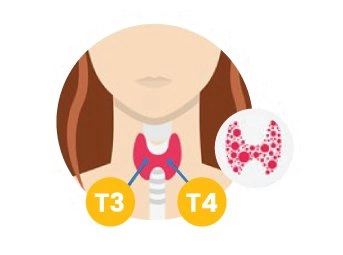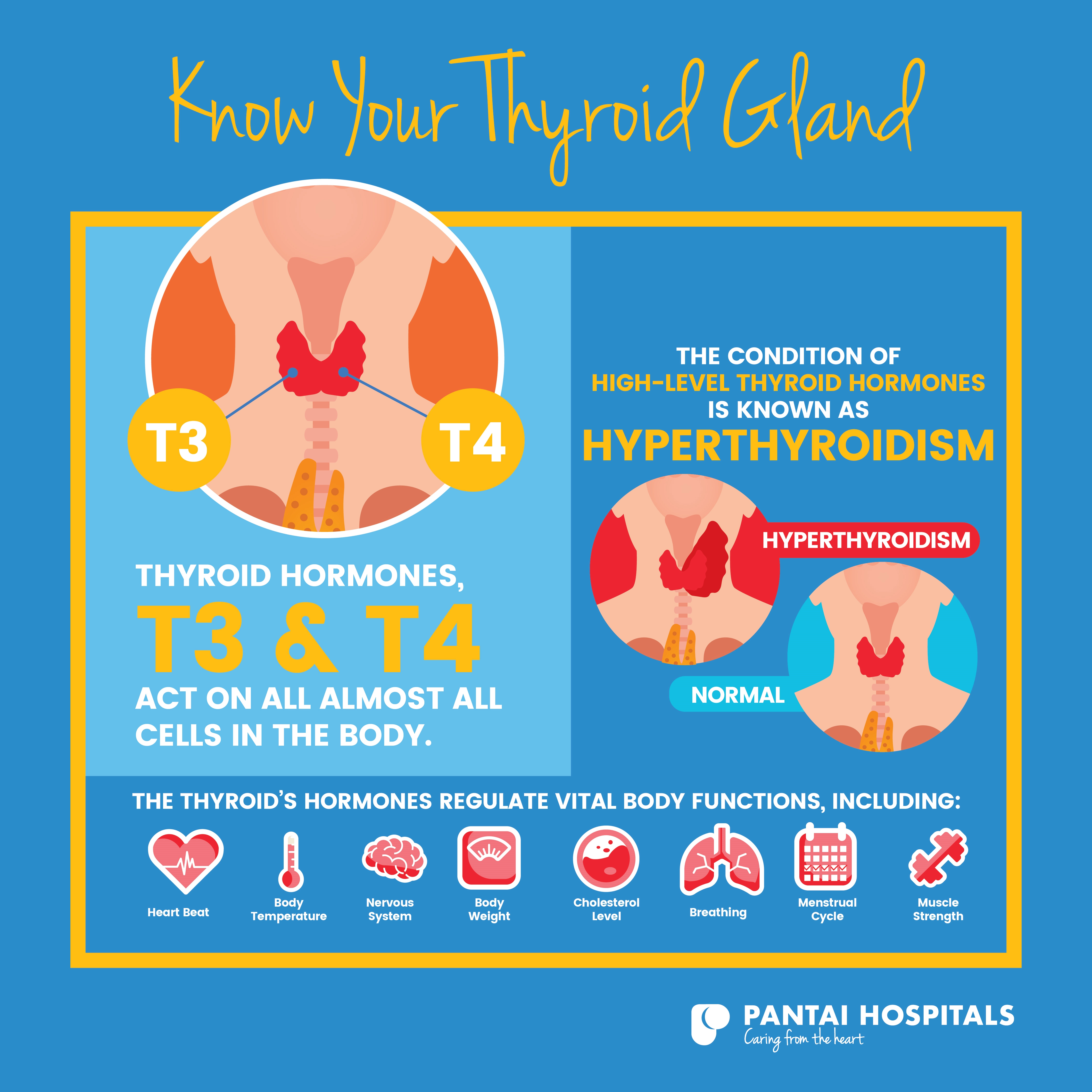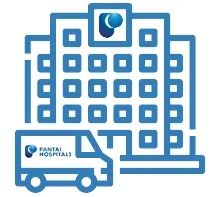Endocrinology is a branch of medicine that deals with the endocrine system. The endocrine system is made up of numerous glands for the regulation of hormones in the body.
Endocrine glands include:
- Adrenal glands
- Hypothalamus
- Thyroid
- Thymus
- Parathyroid
- Pituitary gland
- Pineal gland
- Islet cells in the pancreas
- Ovaries
- Testes
These hormones act as chemical messengers that help regulate various physiological activities such as growth, development, puberty, alertness, sugar regulation, appetite, and bone growth.
What are the causes of endocrine conditions?
Although respective endocrine glands release specific hormones into the body, for some of these glands, the decision to increase or decrease the secretion of their hormones comes from a chain of signals originating from the hypothalamus and pituitary. This chain of signals and feedback mechanism is known as the hypothalamus-pituitary axis.
Diseases of the endocrine system may stem from dysfunction of endocrine glands, anomalies in metabolism and function of endocrine hormones, disturbances in the hypothalamus-pituitary axis or the presence of hormone-secreting tumours.
What are the types of endocrine conditions & symptoms?
Symptoms related to endocrine dysfunction occur when there is a disturbance in the body’s hormone regulation, causing hormone levels to be too high or low.
Thyroid hormones (T3 and T4) affect our basal metabolic rate, growth and development, maturation of the central nervous system, synthesis and metabolism of protein, fat and carbohydrate, the sensitivity of certain receptors towards catecholamines, and heart rate.
Hyperthyroidism (high-level thyroid hormones in the body). General symptoms of hyperthyroidism include:
- Palpitations
- Lethargy
- Over-activity
- Diarrhoea
- Weight loss
- Heat intolerance
- Oligomennorhoea (light menstrual bleeding)
- Hair loss or thinning of hair
- Irritable
- Increased sweating
- Tremors
Hypothyroidism (low-level thyroid hormones in the body). General symptoms of hypothyroidism include:
- Constipation
- Increase in weight
- Cold intolerance
- Lethargy
- Menorrhagia (heavy menstrual bleeding)
- Decline in cognition and memory
- Moody
- Muscle cramps and weakness
- Cold hands
The parathyroid gland produces and secretes parathyroid hormone (PTH), which is responsible for calcium metabolism in the body.
Hyperparathyroidism (high level of PTH in the body). General symptoms of hyperparathyroidism include:
- Fractures due to fragile bones (osteoporosis)
- Increased frequency of urination
- Bone and joint pain
- Abdominal pain
- Tiredness
- Muscle weakness
- Nausea and vomiting
- Loss of appetite
Hypoparathyroidism (low level of PTH in the body). General symptoms of hypoparathyroidism include:
- Tingling or burning (paraesthesia) sensation in the fingertips, toes and lips
- Muscle aches or cramps in the legs, feet, abdomen or face
- Muscle twitching or spasms
- Fatigue or weakness
- Painful menstruation
- Patchy hair loss
- Dry, coarse skin
- Brittle nail
The pancreas secretes insulin, an important hormone for the regulation of blood sugar levels. After a meal, insulin secreted into the blood stimulates the uptake of circulating glucose. This will then bring down the level of blood glucose.
Hyperinsulinaemia (high-level insulin in the body). General symptoms of hyperinsulinaemia include:
- Increase in weight
- Sugar cravings
- Frequent and intense hunger
- Difficulty concentrating
- Anxiety
Hypoinsulinaemia (low-level insulin in the body). Symptoms of chronic hypoinsulinaemia mimic that of diabetes since it leads to a persistently high blood sugar level. Symptoms include:
- Increase thirst
- Increase hunger
- Frequent urination
- Fatigue
- Sudden weight loss
- Recurrent infections
- Slow-healing wounds
Learn more about prediabetes – a condition where blood sugar levels are higher than normal but not yet at diabetic levels.
If blood sugar drops too low, symptoms include the following:
- Sweating
- Dizziness
- Tremors
- Confusion
- Drowsiness
- Anxiety and panic
- Palpitation
- Seizures
- Coma
Adrenal glands are located above the kidneys and secrete hormones such as aldosterone, cortisol, androgens and catecholamines.
Aldosterone is a steroid hormone which regulates water and salt balance in the body by stimulating the absorption of sodium in the kidneys.
- Hyperaldosteronism (high-level
aldosterone). General symptoms include:
- Dizziness, headache, and visual disturbances
- Lethargy
- Muscle weakness involving all limbs
- Muscle cramps
- Numbness
- Increased urination
- Constipation
- Hypoaldosteronism (low-level
aldosterone). General symptoms include:
- Lethargy
- Muscle weakness
- Anorexia
- Dizziness
- Irregular heartbeat
- Faint spells
- Muscle and joint pain
- Nausea and vomiting
- Mood irregularities (e.g., low self-esteem, depression)
- Craving for salt
Cortisol, a steroid hormone secreted by the adrenal gland, is responsible for various body processes, including controlling blood sugar levels and blood pressure, responding to stress or danger, regulating glucose metabolism, and reducing inflammation.
- Symptoms of high levels of
cortisol:
- Weight gain
- Irritability
- Anxiety
- Depression
- Headache
- Constipation or diarrhoea
- Acne
- Increased thirst
- Increased frequency of urination
- Reproductive issues such as erectile dysfunction or irregular menstruation
- Symptoms of low levels of
cortisol:
- Weight loss
- Extreme tiredness
- Muscle weakness
- Loss of appetite
- Nausea or vomiting
- Dizziness
- Skin darkening
- Mood swings
Androgens are hormones produced by the ovaries and adrenal glands in women and by the adrenal glands and testes in males. They are primarily known for their masculinizing effects in men, including facial hair development, a deeper voice, baldness, physical strength, and potency.
- Symptoms of high levels of
androgens
(hyperandrogenism):
- Acne
- Hirsutism (excessive hair growth, particularly the beard and moustache area, underarms, limbs. and pubic region)
- Hair loss
- Obesity
- Irregular menses
- Infertility
- Deep voice
- Symptoms of low levels of androgens
(hypoandrogenism):
- Loss of libido
- Impotence
- Infertility
- Shrinkage of the testicles and prostate
- Reduced growth of facial and body hair for men
- Gynaecomastia (enlarged breast in men)
- Anxiety
- Depression
- Low muscle mass
- Decreased body hair growth for women
- Insomnia
Catecholamines are hormones produced by the adrenal glands. In response to physical or psychological stress, the body releases these hormones. The primary catecholamines are dopamine, norepinephrine, and epinephrine.
Symptoms of high levels of catecholamines:
- Palpitation
- Anxiety
- Constant sweating
- Headache
- Lethargy
- Tremors
- Shortness of breath
How are endocrine disorders screened & diagnosed?
Diagnosis is made based on various investigations. Your doctor will first evaluate your medical history and symptoms before conducting a physical examination.
- Thyroid
- Thyroid function tests
- Thyroid Stimulating Hormone (TSH) receptor antibody test
- Serum thyroglobulin assessment
- Thyroid ultrasound
- Isotope scan
- Parathyroid
- Serum parathyroid hormone (PTH) level assessment
- Serum calcium assessment
- Serum alkaline phosphatase
- Kidney profile test
- Radiography
- Pancreas
- Oral glucose tolerance test
- Haemoglobin A1C (HbA1c) test
- Insulin suppression test
- Computerised tomography (CT) scan
- Magnetic resonance imaging (MRI)
- Adrenal gland
- Suppression test using dexamethasone
- Plasma adrenocorticotropic hormone (ACTH) level assessment
- MRI
How are endocrine disorders treated?
Some of the treatment options commonly used by endocrinologists are medications, chemotherapy, or radiotherapy for patients with cancer, surgery, and lifestyle modifications.
Speak to your doctor if you or your loved ones have symptoms of endocrine disorders. The caring team of healthcare professionals are available for consultation and to provide the best care. Get in touch with us to book an appointment today. We assure you the best possible care tailored to your specific needs.


 Request an Appointment
Request an Appointment.webp?sfvrsn=276ce14_1/vector-(3).webp) International Patient
International Patient

.webp)




 Find A Doctor
Find A Doctor




.webp?sfvrsn=20763f7d_21)
.webp?sfvrsn=f2a2c343_12)





